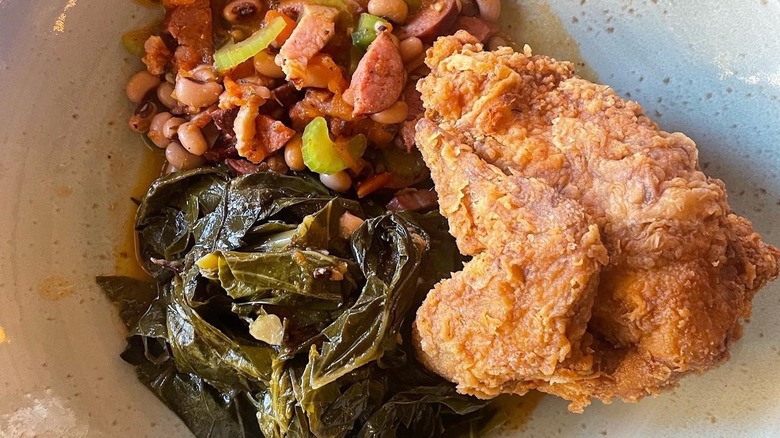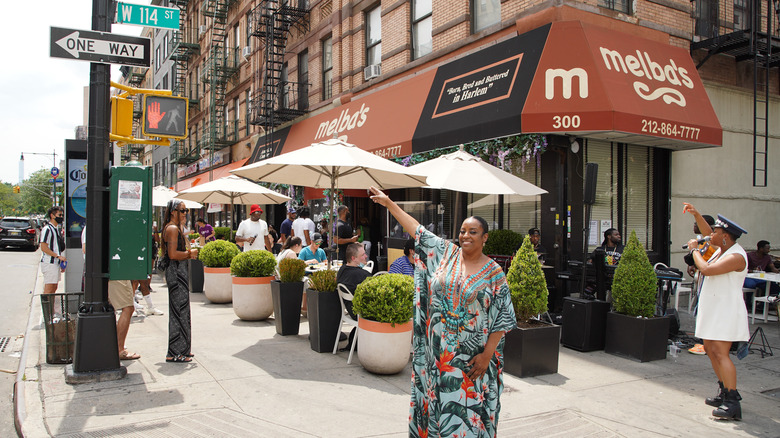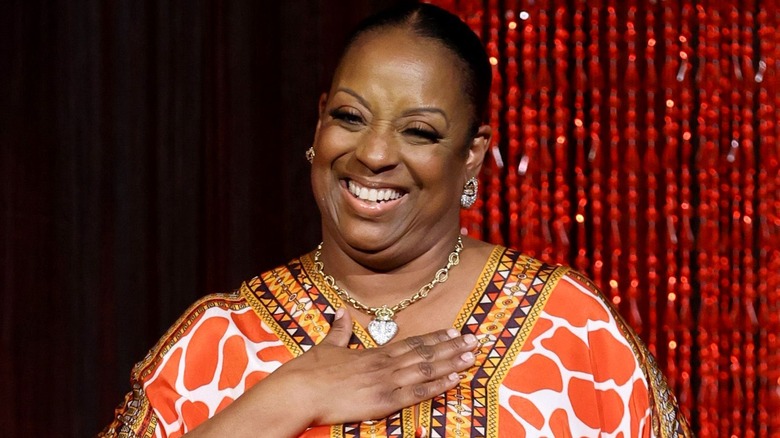How Melba Wilson's Iconic Soul Food Spot Revitalized Harlem
The histories of soul food and Harlem are closely linked. Soul food (a type of Southern cuisine) was largely borne out of necessity by enslaved African Americans who often lacked access to both quantity and quality in their food. Naturally, however, soul food was about more than just being resourceful. It was also about bringing strong flavors to originally simple rations. Later, emancipation led to the Great Migration, which introduced soul food across the country, including in New York City.
Since the early 20th century, Harlem has been a notable African American hub, and in the 1920s, the famous Harlem Renaissance began, celebrating myriad aspects of Black culture. The Great Depression was especially hard for this NYC neighborhood, but the Black Mecca (as Harlem is also known) persevered and yet again made history as a social nexus during the Civil Rights era of the '60s and beyond. It was also during this time that one prominent soul food spot opened in Harlem.
Melba Wilson is soul food royalty
Harlem is undeniably a prominent soul food center in the present day and has been for arguably more than a century. One notable example of this came in 1962 when Sylvia Woods bought the Harlem luncheonette she worked at and turned it into the now-legendary Sylvia's Restaurant. Sadly, the "Queen of Soul Food" died in 2012, but Sylvia's legacy lives on in the form of her since-expanded family business, and her restaurateur niece: Melba Wilson.
There's a lot more to Wilson's story than just family history, though. In addition to working at Sylvia's growing up, Wilson also gained experience at the Rosa Mexicano and the Twin Towers' Windows on the World. In more recent decades, preceding Harlem yet again initiating a cultural renaissance, Wilson unveiled her very own Melba's Restaurant. Serving comfort food since 2005, Melba's is widely regarded as a champion of modern-era soul food. Its menu is well represented by Melba's signature chicken & eggnog waffles.
Wilson was deliberate in the placement of Melba's. "Harlem has always been a gold mine," Wilson told Forbes, explaining why she chose a street with a bad reputation in an effort to bring prosperity to the block. "I am one of few entrepreneurs who is born-and-raised in this community and invested in Harlem way before many saw the value." Other business owners have since followed suit. Wilson wished to revitalize Harlem, and that's exactly what she's done, even during the unprecedented times of the early 2020s.
Melba's and Harlem continue to persevere
Up to this very day, Melba's remains one of America's best soul food restaurants. However, this continued success isn't always easy to achieve. Speaking with Forbes in April of 2020, Wilson confirmed the roughly 300 diners she hosts per day had dropped to zero during those early days of quarantine. "Restaurants take care of so many, now we need to be taken care of," Wilson remarked. "I have never experienced anything like this before in my life, but as my grandmother would say, 'This too shall pass.' Amen? Amen!"
Many restaurants did not survive the worst of the pandemic, but fortunately, Melba's did (and so did Sylvia's). Similarly, Harlem's contemporary renaissance still honors the neighborhood's importance and well-being. Wilson is an impressive example of such unstoppable growth. In 2022, she revealed that she was expanding Melba's with a second location in nearby Newark, New Jersey, further spreading her soul food's reach. On a similar note, in the summer of 2022, Melba's reached Central Park with a comfort-food food truck. You can also watch her as a judge on HBO Max's "The Great Soul Food Cook-Off."
In more ways than one, Wilson is still building community, both in and around Harlem. "My grandmother and I would cook almost every meal together," she reflected to Thrillist. "This in turn helped me learn the importance of how food truly brings people together."


